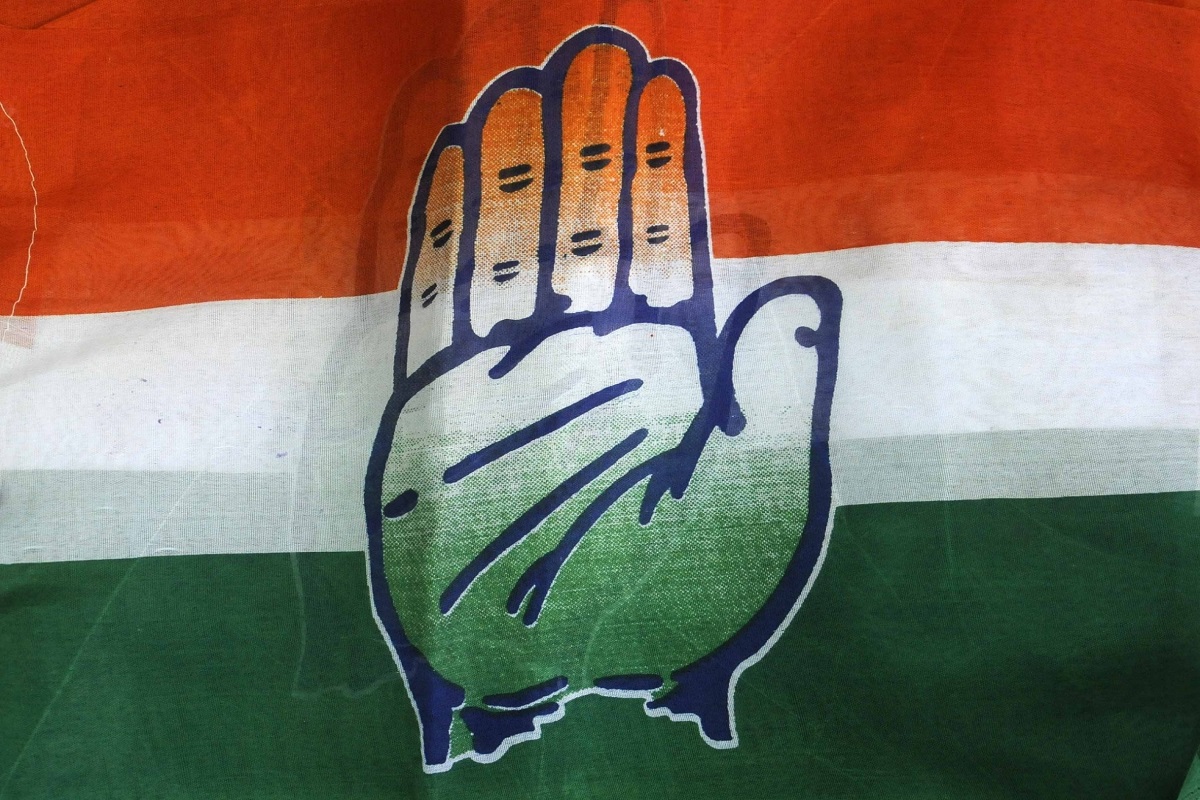Struggle in MP
As the electoral battlefield heats up in Madhya Pradesh, the Congress finds itself locked in an uphill struggle against the formidable might of the Bharatiya Janata Party (BJP).
Certainly, the party spokesperson was quite vocal in saying that Congress members wanted Mr Rahul Gandhi to return to the helm. Yet, a careful reading of the interview in question would show that even the remark made by the younger Ms Gandhi was tinged with condescension.

Congress. (File Photo: IANS)
The controversy provoked by remarks made last year by Ms Priyanka Gandhi on a person from outside her family leading the Congress, and now published in a recent book, suggest just how India’s main political parties view the proposition.
While the ruling Bhartiya Janata Party’s enthusiastic response to the remark confirms its obsession with the Gandhi family, the apparent disavowal of the remark by the Congress on the ground it was made a year ago and does not have current relevance suggests the party is not yet ready to give up its obeisance to the Gandhis.
Certainly, the party spokesperson was quite vocal in saying that Congress members wanted Mr Rahul Gandhi to return to the helm. Yet, a careful reading of the interview in question would show that even the remark made by the younger Ms Gandhi was tinged with condescension.
Advertisement
Asked if the presence of the Gandhis in the party would come in the way of a non-family head, she said, “I think it would only undermine somebody if that was the way we wanted (it) to be.”
In other words, the suggestion was that a party president from outside the family would be there on sufferance, and this assertion should silence those who believe a democratisation of inner-party affairs is now imminent.
In the years between 2004 and 2014, Mrs Sonia Gandhi had perfected the art of wielding power without responsibility when the party controlled the Union Government. Of course, the party projects this differently and its spokesperson made the position quite clear when asked to comment on the interview in focus.
He is reported to have said: “The Nehru-Gandhi family has held together and served Congress unmindful of the trappings of power. In 2004, Soniaji set an example by sacrificing power to serve the party.”
This would suggest that the same prescription would be used to control the party, even in the unlikely situation of the Gandhis giving up official roles within its structure.
The problem with the Congress of course is that while it has several leaders of talent and accomplishment, not one of them is acceptable to more than a small faction, or outside a specific area or state.
Unlike in the past, when it drew talented individuals who were acceptable nationally, it has after the 1969 split degenerated gradually into an entity that needs a glue to hold it together.
While electoral reverses in 1977 and at various points of time between 1989 and 2004 caused some leaders to break away and form their own outfits, these have remained essentially local or at best regional in scope and outlook. Until the Congress finds within its ranks a leader with greater acceptability, it is stuck with the Gandhis.
That may be its salvation, if discontent with the present dispensation grows, or its doom, if the BJP triumphs in another national election.
Advertisement